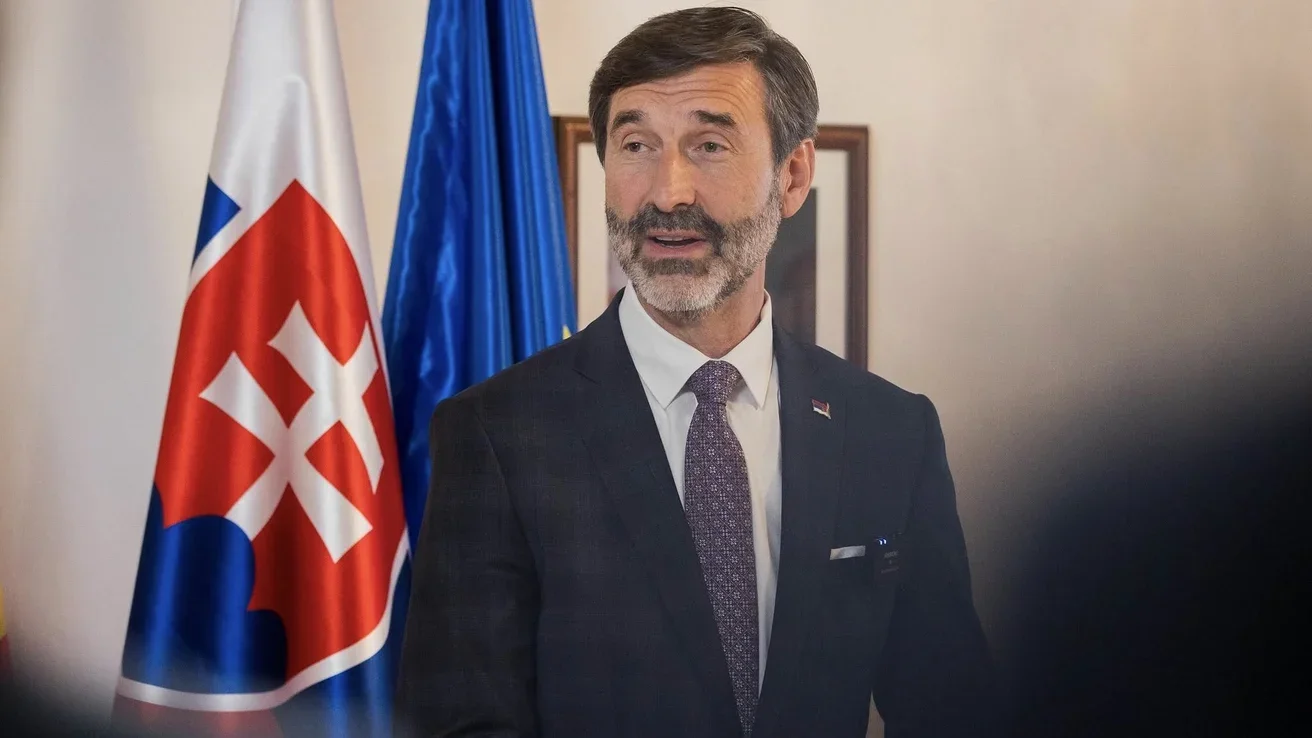Slovakia’s Foreign Minister Juraj Blanár warned that Ukrainian attacks on the Druzhba oil pipeline could backfire against Ukraine itself, potentially cutting off diesel supplies that account for 10% of the country’s monthly fuel consumption.
Speaking on political program Politika 24 on 24 August, Blanár revealed he had discussed the issue by phone with his Ukrainian counterpart Andriy Sybiha. The Slovak minister emphasized that the Slovnaft refinery, which processes Russian oil transported through the pipeline, serves as a major diesel supplier to Ukraine.
“We understand that this is difficult for Ukraine, but this infrastructure is very important for us, especially when we see that Ukraine itself is harming its own interests because it risks not having enough fuel on its side,” Blanár stated. “Our national interest is to protect these supplies, and therefore we communicate openly with the Ukrainian side.”
The minister said Sybiha acknowledged this information and would communicate it further within the Ukrainian government.
Blanár announced he would continue discussions on the European level and in a video call with Ukraine’s Deputy Prime Minister scheduled for 25 August.
The Slovak Foreign Minister referenced a January European Union statement defining energy supply infrastructure integrity as “indivisible” for the bloc. The statement called on all third parties, including Ukraine and Russia, to respect this principle, with the European Commission pledging to take measures if violations occur.
On Friday, Slovakia and Hungary sent a joint letter to EU foreign policy chief Kaja Kallas and Energy Commissioner Dan Jorgensen, demanding immediate action to ensure energy supply security commitments to EU member states are honored.
“I don’t want to escalate this situation with my statements today. First and foremost, I call for a pragmatic approach,” Blanár said. “Even though I know this is painful for Ukraine, because a few days ago one significant refinery that supplies Ukraine with products was bombed. But it is necessary that we protect our interests.”
The minister expressed hope that US President Donald Trump’s initiative could lead to peace negotiations and end the war in Ukraine. He noted that attacks on energy infrastructure from both sides have increased despite ongoing peace talks.
“We perceive that these attacks, despite ongoing peace negotiations, are increasing and have an impact on critical infrastructure on which we depend as the Slovak Republic, as well as Hungary,” Blanár explained.
According to reports from Ukrainian outlet Teraz and hromadske, the controversy stems from three separate Ukrainian drone attacks on the Druzhba pipeline’s distribution stations in Russia’s Bryansk Oblast.
The first attack occurred on 13 August, when Hungary accused Ukraine of targeting a distribution station that plays a “key role” in Hungary’s energy security. A hromadske intelligence source confirmed the strike caused a fire at a facility involved in supplying Russia’s military-industrial complex.
Hungarian Foreign Minister Peter Szijjarto reported a second attack on 18 August, which disrupted oil supplies for one day. A third attack on 22 August again halted Russian oil deliveries through the pipeline.
The Druzhba pipeline carries Russian crude oil to Slovakia and Hungary, both EU members that have maintained exemptions from broader European sanctions on Russian energy imports. The pipeline supplies the Slovnaft refinery, which then processes the crude into various petroleum products, including the diesel fuel that Ukraine imports.
Hungary and Slovakia’s joint appeal to EU leadership represents an escalation in diplomatic pressure over the pipeline attacks. Both countries argue that Ukraine’s targeting of the infrastructure violates EU principles while simultaneously undermining Ukraine’s own energy security needs.




